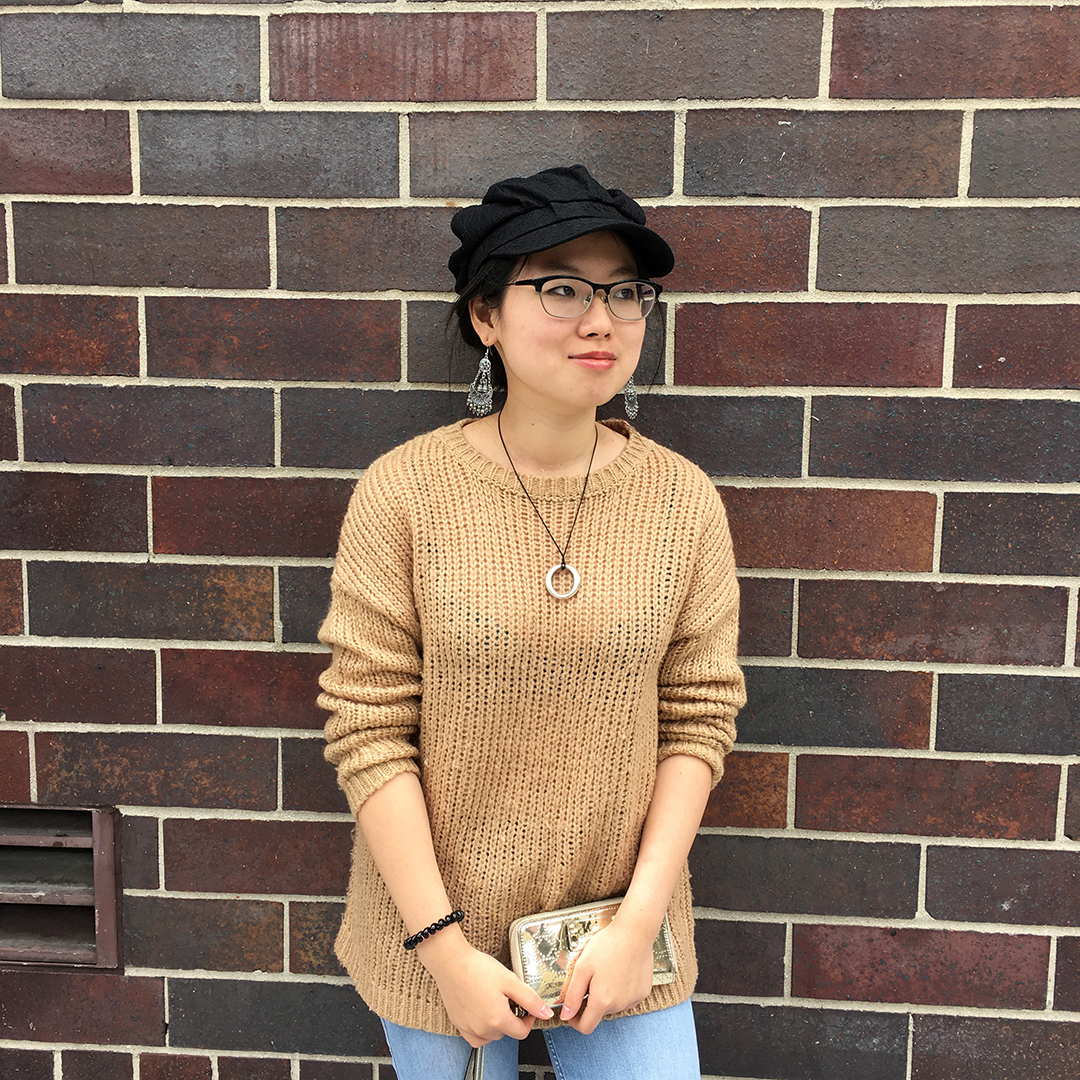February 14, 2018
THE MICRO-LEVEL OBSERVATIONS OF SOCIAL INTERACTIONS IN LITERATURE
Undergraduate Yujiao (Cecily) Chen, C’20, learns how to step back and observe through research mentoring program
Tuesday, February 13, 2018
By Katelyn Silva
Yujiao (Cecily) Chen, C ’20, is a soon-to-be-declared English major with a deep interest in queer theory, film, performance art, and representation in narratives.
While learning about the Penn Undergraduate Research Mentoring Program (PURM) at the Center for Undergraduate Research and Fellowships (CURF), Chen discovered that she could simultaneously learn how to conduct research and explore her multi-disciplinary interests. Specifically, she was struck by English Professor Heather Love’s research project, titled “Description in Literature and the Human Sciences.” It inspired Chen to apply to become Love’s 10-week research assistant through the PURM program.
“By focusing on detailed, ‘thin’ descriptions of human gesture in literature, and observing human behavior on a truly microscopic level, Professor Love believes that post-war literature and sociology has much more to offer us in regard to identity politics than what originally meets the eye,” Chen explains.
During her summer research project, Chen pored through the relevant texts and created a written overview of the sociologists who are central to Love’s work. She set out to answer questions like, “How did these thinkers—who were alive in the same era—respond to each other’s work? How did they argue with one other? How did their methodologies differ?”
She and Love also took advantage of the Penn Museum archives that house personal files and manuscripts by anthropologist Ray L. Birdwhistell (a Penn faculty member from 1969-1988). Through that experience, Chen developed a keen appreciation for Birdwhistell’s concept of kinesics, the study of the way in which certain body movements and gestures serve as a form of nonverbal communication. Kinesics dovetails nicely with Chen’s interest in performance art, which she notes, “is all about the body.” And though she focused mostly on texts during her summer research, Love encouraged Chen’s interest in performance art, as well as film.
“Dr. Love is a very giving and encouraging mentor. Once she knew I was interested in performing arts and film, she sent me articles about filmmakers and we watched a lot of documentary films together,” Chen says.
For Chen, it is a film by Birdwhistell that best brings to life the concepts of microsociology and kinesics. She describes watching a film that “randomly videotapes New Yorkers walking down the street.” At the moment when Birdwhistell’s video technician, Jacques van Vlack, is about to shift the camera’s gaze, Birdwhistell tells him to remain filming a woman who had dropped her newspaper and in the process of picking it back up, bumped into the man next to her.
“When you slowed down the video and broke everything down into very small, specific movements, you saw something you didn’t before,” explains Chen. “When the woman bends down to get her newspaper, her hand purposefully clutches the man nearby in order to get his attention. It was no accident It reveals something new to the observer.”
Chen says she has learned about the value of stepping back and observing, particularly when “observing representations of that which is often described as a subculture, like queer culture.” She adds, “When we strip away preconceived notions, break everything down, and see the individual movements and the human behavior as it really is, it can destigmatize that behavior.”
Now in her sophomore year at Penn, Chen has begun making connections between her classwork and her summer research experience. In the fall, she took the class Writing through Duchamp, in which she often found herself applying the scholarship of Birdwhistell and “what he said about breaking down gestures and human behavior” to Duchamp’s deconstruction approach.
With hopes to one day pursue a doctorate, Chen says she is thankful for her summer mentorship experience. “I’m grateful to have had the opportunity to gain first-hand experience with scholarly research. The opportunity to work on an actual research project with a professor is unlike any other experience I have had.”


